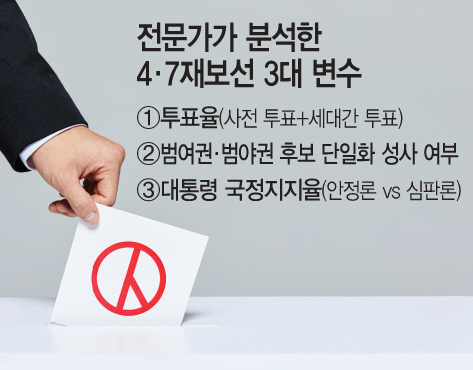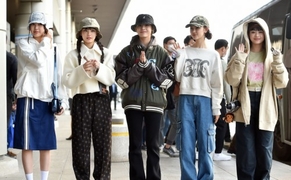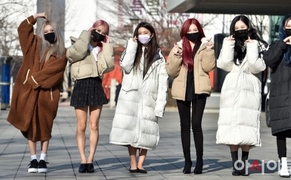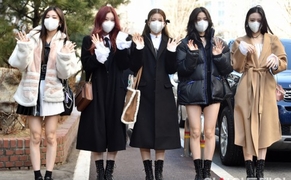 |
AsiaToday reporters Jeong Geum-min & Jo Jae-hak
Less than 40 days are left ahead of this year’s Seoul and Busan mayoral by-elections set to be held on April 7. There are usually four main factors that determine the result of the election, which are figure, composition, policy and atmosphere. These four factors are important for the upcoming by-election which will take place amid the pandemic. However, there are many variables that could affect the outcome of the election. Experts say the three major variables are voter turnout, candidate unification, and presidential approval rating.
1. Voter turnout
Experts predict that the upcoming Seoul, Busan by-election race will be too close to call. They pointed out that voter turnout, including early voting, will be the biggest variable.
“One of the biggest variables of the upcoming by-elections will be voter turnout,” said Kim Mi—hyun, director general of R&Search. “The key is how voter turnout across all age groups will come out,” Kim said. “The turnout of voters in their 60s and over was about 80 percent in the last general election. We have to watch carefully the turnout of voters in their 40s, the core supporters of the ruling Democratic Party.”
“Another point to look at is early voting,” Kim said. “The results of the exit polls for the general election last year showed that the ruling DP was 10 percent ahead of the main opposition party in Seoul in early voting. On election day, the main opposition party won in some regions, but they could not reverse the result because early voting rate was high and the ruling party was nearly 10 percent ahead.”
The upcoming by-elections are held on a work day, not on a public holiday. Early voting is slated for April 2 and 3 from 6 am to 6 pm. The elections will be held on April 7 from 6 am to 8 pm. Typically, by-election had a low turnout. Of the 25 ward heads in capital Seoul, 24 of them belong to the ruling party. Of the 49 district constituency seats in Seoul, the ruling party has 41 seats. Some observers say the ruling DP could benefit from low turnout since it has a strong organizational power.
In general, it is the norm that low turnout is more favorable for conservative candidates. On the other hand, some others predict that turnout could drop somewhat among left-leaning young voters in their 20s to 40s because election day is not a public holiday.
Experts say the key variable will depend on how many active supporters each party could attract to polling stations. Instead of swing voters, it is active voting groups that determine the outcome of elections that take place on weekdays.
2. Unification of candidates
One of the biggest questions is whether the ruling and opposition parties can unify their candidates in the upcoming by-elections. In the progressive bloc, DP’s Park Young-sun is the most potential. The question of how Park will achieve a harmonious unification with other candidates, including Kim Jin-ae of Open Minjoo Party and Cho Jung-ho of the Transition Korea party, is a pressing matter. Another main factor of win or lose is whether Park would win support from the supporters of the Justice Party.
On the other hand, Ahn Cheol-soo, leader of the minor opposition People’s Party, won the first round of primary candidacy in his bid to become a single candidate of the opposition bloc for the by-election. He won a primary with Keum Tae-sup, who left the ruling DP, the outcome which was decided by a public opinion poll.
“The biggest variable is who will be a single candidate in the opposition bloc,” said political commentator Park Sang-byung. “If Na Kyung-won from the main opposition People Power Party becomes a final candidate in the opposition bloc, moderate conservative voters are more likely to leave. If Ahn becomes a final candidate, there may be a few opposing people from the loyal conservatives,” Park said.
3. Presidential approval rating
With one year left until President Moon Jae-in steps down, the upcoming election will evaluate the current administration’s past four years amid the pandemic. Experts say the traditional gathering of the ruling and opposition parties depends on the approval rating of the Moon Jae-in administration. The higher the positive evaluation of the current administration, the more likely the supporters of the ruling bloc will go to the polling stations, and the more negative evaluations, the more likely the supporters of the opposition bloc will go to cast their ballots.
“The upcoming election will be a confrontation between those who want stable regime and those who want to change regime,” said commentator Choi Young-il. “Voters in Seoul and Busan will make different choices depending on whether or not they believe the stable Moon Jae-in regime is beneficial for the country.”
#Seoul #Busan #by-elections #early voting #voter turnout
Copyright by Asiatoday
Most Read
-
1
-
2
-
3
-
4
-
5
-
6
-
7





















